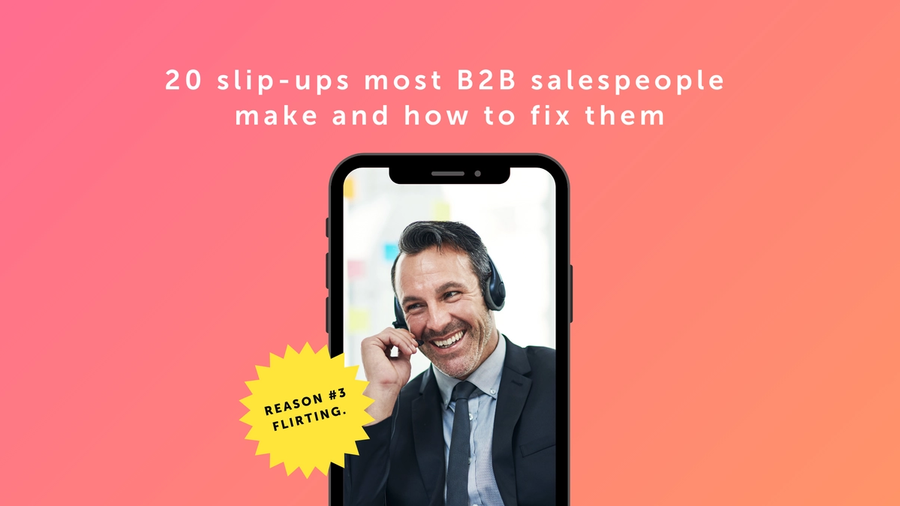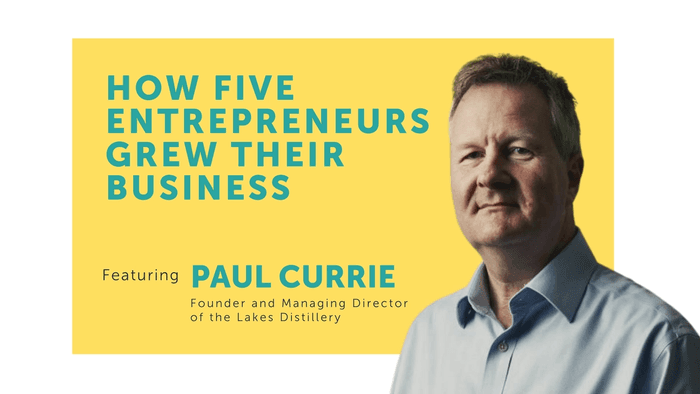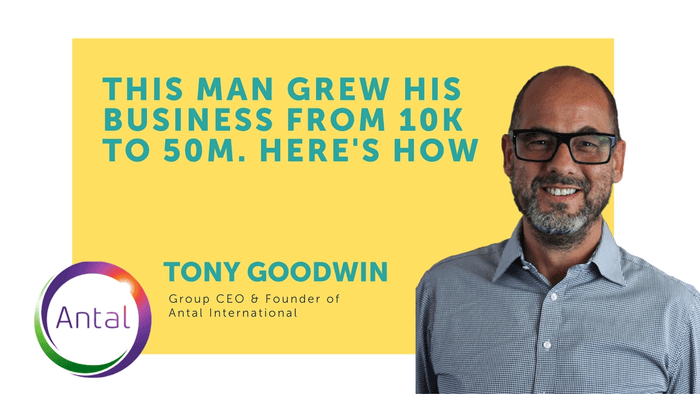Sales & Lead Generation
20 Slip-ups Most B2B Salespeople Make and How to Fix Them
We're always getting asked about the common mistakes B2B salespeople make – we could probably list a hundred but that would make a really depressing read (and a really long page). So we've stuck to 20 – BIG ones.
- Focusing too hard on the product.
You’ve secured a meeting and – short of knowing what the MD’s mother likes for breakfast – you couldn’t be more prepared. You walk in, shake hands, and launch into your fabulous presentation. Wrong. Before anything, talk to your prospects. Spend five to 10 minutes chatting and helping them relax. - Taking it all too seriously.
You’re not there to stop famine or human trafficking. Keep it light-hearted. - Flirting.
People buy from people they respect. Above everything, you’re there to be respected, not to be liked or taken out for dinner. B2B selling is about positioning yourself as an expert with a solution to a business problem. - Hiding behind emails.
Why is this still happening?! The year is not 1995 – we now have Twitter, LinkedIn, Facebook, not to mention phones. People still send blanket emails that go nowhere and mean nothing. If a prospect isn’t answering your emails then pick up the phone or get in touch through social media. - Not making enough calls.
Sometimes I’ll ring a prospect four times before they call me back. This isn’t stalker-ish, this shows I care, that I really want to speak to that person. - Making too many calls.
If they don’t call back after eight calls chance tack. - Being individualistic.
There’s power in numbers – a team effort always generates better sales. - Calling at the wrong time.
Think about which times might suit them best and get in touch accordingly. (9.30am on a Monday is never a good time, FYI.) - Getting impatient.
Remember Buffet’s saying: “you can’t make a baby in a month by making nine women pregnant”. - Letting the ego lead.
You have weaknesses, we all do, recognise them and delegate. - Not adapting.
Somebody wants your business, but not quite how you’d normally do it? Close the deal and figure out how to deliver it along the way. Learn to adapt and see the solution not the problem – remember Darwin? - Dressing wrong.
If you’re meeting a tech start-up don’t show up in a suit. And if you’re meeting a high street bank don’t show up in jeans. Simple. - Not preparing.
Know the business inside out and never be late for a meeting. - Assuming they are like you.
They’re not, in fact, the likelihood is they’re nothing like you and they don’t want to talk about shopping, football or anything else you’ve assumed they want to chat about. Find out what their interests are and talk about that. (Even if it’s cricket.) - Being themselves.
I know it sounds harsh, but showing up to a meeting either deliriously happy, hacked off or uber excited is a no-no. Contain your emotions, chat to your potential customer and work out what kind of state of mind they’re in, and then mirror it. - Ignoring Twitter.
It’s not going anywhere – get on it and start using it. - Ignoring LinkedIn.
Also not going anywhere, grow your network and start posting links and updates. - Answering calls or emails in a meeting.
I don’t care if it’s Samuel L. Jackson wanting to know if you’re free for dinner. Don’t do it. In fact, don’t take your phone out of your pocket or handbag. For the duration of that meeting, the only person that counts is your potential client. - Losing sight of winning.
Not just for yourself, but for your team too. - Taking no for an answer.
They said no? Then you didn’t explain your proposition well enough, that’s all.
If you need to know more about how to best reach your target audience, Nutcracker are here to help. Call us on 020 3941 0305 or drop us a message today.
Share this:





